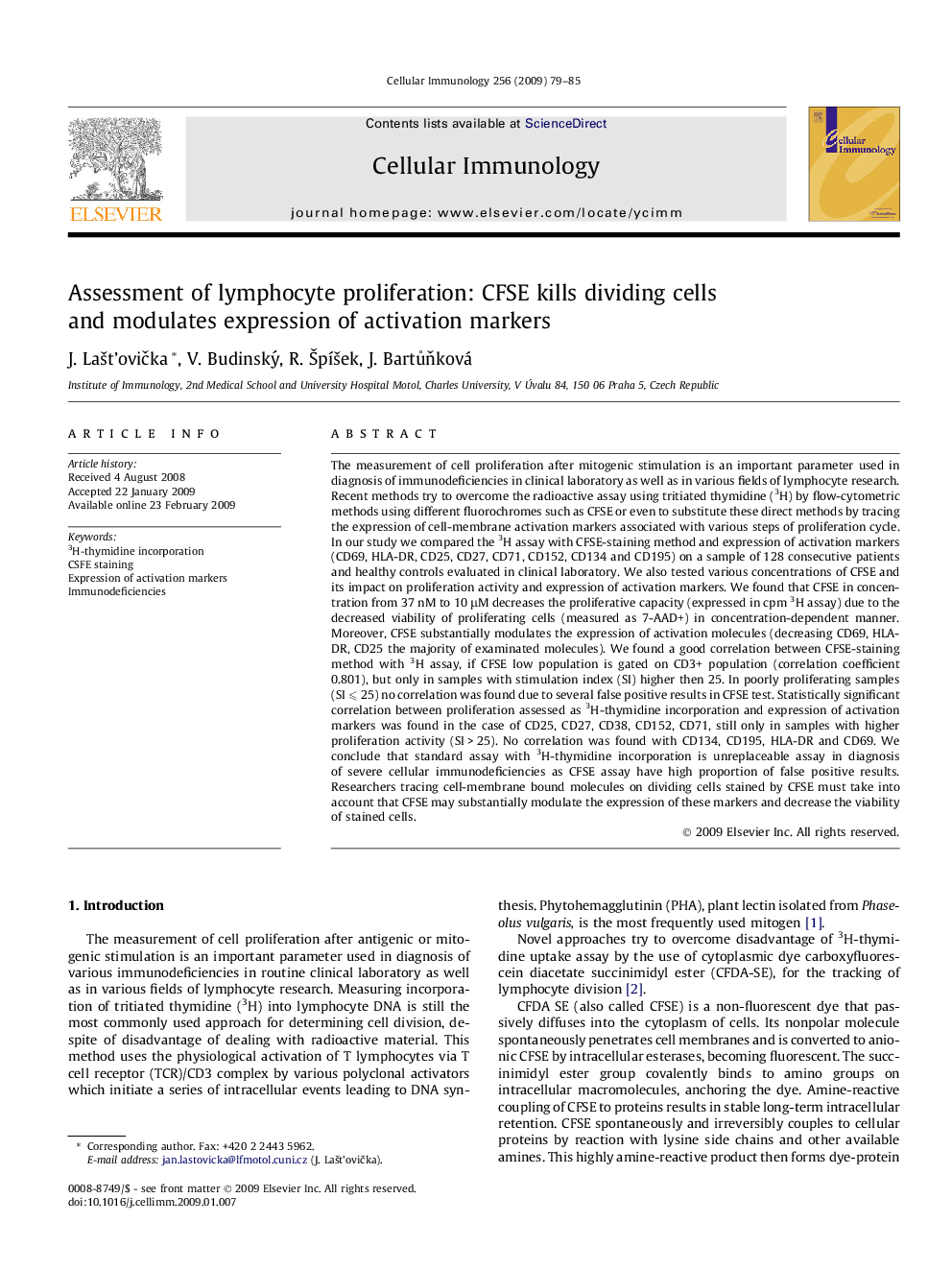| Article ID | Journal | Published Year | Pages | File Type |
|---|---|---|---|---|
| 2167779 | Cellular Immunology | 2009 | 7 Pages |
The measurement of cell proliferation after mitogenic stimulation is an important parameter used in diagnosis of immunodeficiencies in clinical laboratory as well as in various fields of lymphocyte research. Recent methods try to overcome the radioactive assay using tritiated thymidine (3H) by flow-cytometric methods using different fluorochromes such as CFSE or even to substitute these direct methods by tracing the expression of cell-membrane activation markers associated with various steps of proliferation cycle. In our study we compared the 3H assay with CFSE-staining method and expression of activation markers (CD69, HLA-DR, CD25, CD27, CD71, CD152, CD134 and CD195) on a sample of 128 consecutive patients and healthy controls evaluated in clinical laboratory. We also tested various concentrations of CFSE and its impact on proliferation activity and expression of activation markers. We found that CFSE in concentration from 37 nM to 10 μM decreases the proliferative capacity (expressed in cpm 3H assay) due to the decreased viability of proliferating cells (measured as 7-AAD+) in concentration-dependent manner. Moreover, CFSE substantially modulates the expression of activation molecules (decreasing CD69, HLA-DR, CD25 the majority of examinated molecules). We found a good correlation between CFSE-staining method with 3H assay, if CFSE low population is gated on CD3+ population (correlation coefficient 0.801), but only in samples with stimulation index (SI) higher then 25. In poorly proliferating samples (SI ⩽ 25) no correlation was found due to several false positive results in CFSE test. Statistically significant correlation between proliferation assessed as 3H-thymidine incorporation and expression of activation markers was found in the case of CD25, CD27, CD38, CD152, CD71, still only in samples with higher proliferation activity (SI > 25). No correlation was found with CD134, CD195, HLA-DR and CD69. We conclude that standard assay with 3H-thymidine incorporation is unreplaceable assay in diagnosis of severe cellular immunodeficiencies as CFSE assay have high proportion of false positive results. Researchers tracing cell-membrane bound molecules on dividing cells stained by CFSE must take into account that CFSE may substantially modulate the expression of these markers and decrease the viability of stained cells.
